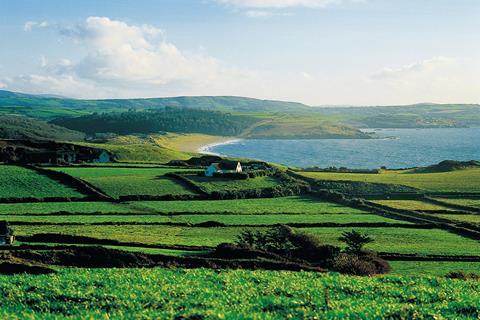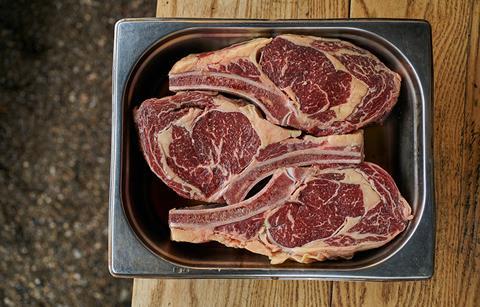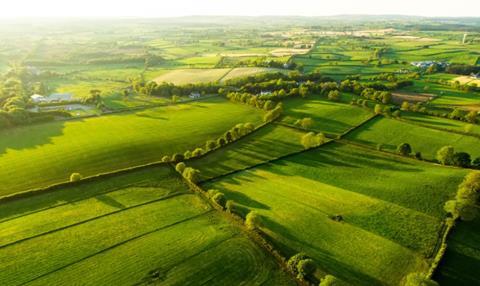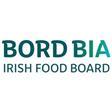Bord Bia’s meat, food and beverage director, Padraig Brennan, tells Meat Management about what the Brexit deal means for Irish beef in the UK.

“As we start 2021 it is safe to say that we are operating within one of the most potent and complex macro-environments that we have seen in very many years. However, during the largest disruption to normal market operations, globally, since the end of World War II, 2020 was a watershed year for Irish food, drink and horticulture exporters. In 2020 Ireland has held the value of our exports to €13bn, 33% of which were destined for the UK, valued at €4.3bn– a firm indicator of the strength of our commitment to protect our share of the valuable UK market in the face of continued volatility. Of this €4.3bn, 38% or €1.65bn was protein exports with the remainder of this export value made up of dairy; prepared consumer foods and beverages.

We are at the beginning of the new trading relationship with the UK and while we know that the UK leaving the EU will undoubtedly bring its own challenges and shifts in the competitive landscape in the coming years, what will not change is Ireland’s commitment to supplying the highest quality, sustainable beef in a way that addresses the changing demands of UK consumers.
In 2020 Ireland supplied 44% of beef produced to the UK. Irish supply is well established; understood and accepted by customers and consumers alike and as a result, Irish industry is looking to retain its strong UK market position. Irish beef accounted for approximately 80% of all UK imports of beef in 2020 and for many customers’ British and Irish beef is interchangeable due to equivalence of our systems and consumers’ perceptions.
Through independent research consumers were asked how they expect their spending to change in the years to come. The strongest resonating points are these: In terms of what consumers are buying, almost three quarters of consumers are opting for brands they know and trust. 88% of UK consumers would purchase Irish beef positioned just behind Scottish and English beef and nearly twice ahead of imports from other European & third countries. Furthermore over 60% of UK consumer consider Irish beef as local and ‘home Isles’.
This strong connection to Irish beef reflects Ireland’s close proximity and its similar high standards in farming practices and production systems to the UK. Irish beef is in a position to positively navigate these consumer concerns thanks to 25 years of farm quality assurance schemes and an understanding of these high standards from UK trade customers. One area of clear differentiation of Irish meat products compared to other imports is the ability of our sector to supply on a ‘just in time basis’ consistently throughout the year, which has been a cornerstone of the UK retail model for many years.

When asked what Irish food and drink items UK shoppers would miss most if there were to be a reduction in availability or spike in costs after Brexit, the data revealed that 72% of regular beef buyers in the UK would miss Irish beef if there was an increase in price or limitation on its availability.
Since the referendum vote Bord Bia has been working with the Irish beef industry to prepare for the UK’s withdrawal from the EU and the resulting changed trading relationship. The results of an annual Bord Bia client diagnostic survey with clients have shaped our supports to clients since 2017 to facilitate upskilling for clients in customs training, supply chain management, foreign exchange hedging and commercial marketing strategy.
Bord Bia’s promotional activities with UK customers has also had a heavy focus on emphasising the strength of the quality and sustainability standards of our Irish programme through our Assurance Schemes and Origin Green, our national food and drink sustainability programme. These programmes are critical in allowing us to further cement Irish beef’s position based on the equivalence in British and Irish farming and processing quality standards.
Last October, Bord Bia launched the first ever Irish beef TV campaign in the UK with the aim of leveraging this ‘local’ perception of Irish beef. Airing during the high profile ITV breakfast period, the campaign focussed on the commonalities between British and Irish beef and emphasised how Ireland continues to be the perfect source of premium, grass fed beef for British families.

And lastly, the development and launch of a Grass Fed Standard for Irish beef in 2020 also positions Ireland strongly in the natural space in the market through providing verified proof of the grass fed nature of our products. The associated logo allows exporters and Bord Bia to communicate directly with consumers and further strengthen the premium perception of Irish beef. Ireland has always had a strong reputation for grass fed beef and over the years Irish grass-fed beef remains the beef of choice by many high end and Michelin star chefs across the UK. Testament to this was that in 2019 Ireland won more medals than any other country at the esteemed World Steak Challenge, beating competition from Australia, New Zealand, Uruguay, the US, Canada, and other EU Member States.
All of this work has been leading us to this point. While the Common Trade Agreement struck between EU and UK removes the possibility of tariff or quota imposition for the foreseeable future, we know there will still be extra cost and complexity for exporters to this nearest market.
However, as we start 2021, our exporters are reporting solid order volumes which is a direct result of the strong trading relationships nurtured over many years. All around the world consumers and customers are increasingly demanding credentials around sustainability in beef production that Ireland is well placed to meet. With Bord Bia’s insight driven support, we remain focused on partnering with this vibrant and resilient sector to pursue global growth in a very different world.”


















